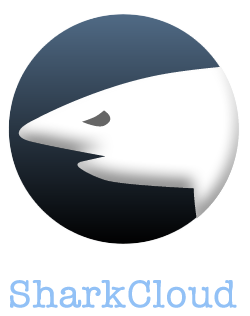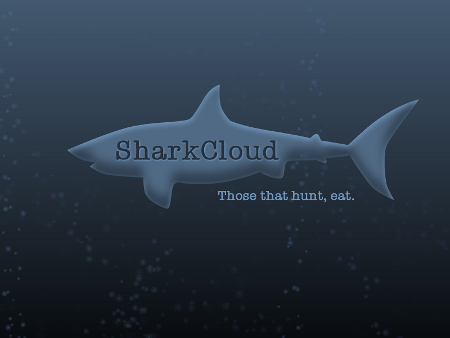Storm Bear Williams comes into the the FOSS Force office and plops onto one of two big, overstuffed chairs in our conversation pit. After a howdy, he says “I couldn’t find any microcassettes, so I got this.” He hands me a new, still in the box, Sony hand held digital audio recorder with a built-in microphone, good for 500 minutes.

He’s come for an interview. When I’d set up the appointment, I told him I was running low on microcassettes and asked if he could pick up a couple, just in case I needed them. When he discovered microcassettes are now obsolete and pretty much unavailable, he went ahead and sprang for something to get the job done.
A cynic might think this was only to curry favor, but I’ve known Storm for over twenty years, so I know better. For one thing, he doesn’t like to disappoint. For another, he’s pragmatic and always the businessman. He didn’t want the interview to go south just because it couldn’t be recorded.
On this day he’s wearing his CEO hat. He’s come to talk about SharkCloud, his latest project, which could be a FOSS game changer if he gets it to fly. Although I already know something about SharkCloud, and think it’s a good idea, I ask him to tell me about the project in his own words:
“SharkCloud is an online cloud application platform. It’s a complete suite of office tools: word processing, spread sheets, contacts, email and forms. The user can go online and have those tools, like Google Apps, but if they ever get tired of our service they can always download the software, just like they do with WordPress or any other online open source package, load it to their server and continue going like nothing’s happened. Totally free. Totally open sourced.”
In other words, it’s Google Apps or Microsoft’s Office 365 under the open source WordPress model. Unlike Apps or Office 365, SharkCloud users will have a choice between utilizing the cloud based hosted service or to download a standalone version that can be used on a desktop or server. There will also be an easy migration path for users who already have data on SharkCloud’s server when the decision is made to go with private hardware. Williams envisions a single click for the whole migration process.
That would be cool enough, but the logical next step is cooler still. To further distinguish SharkCloud from Google’s and Microsoft’s offerings, there will be an app store or plugin repository.
“Somebody could write an app that would work as a conduit between your financial data and the SharkCloud platform. Maybe some addon for your calendar. Or you wanted some weird Klingon font running on your word processor. Or you wanted some kind of merging of forms and word processing together in a cloud environment.”
In theory, any function imaginable should be able to be hung on this framework. There could be plugins to seamlessly integrate SharkCloud with multiple sites running WordPress, Drupal, Zen Cart or any other web platform. Small businesses would find it appealing, as it would offer a way to develop a totally integrated business system, without having to spend tons of money for somebody’s proprietary stack. Without a doubt, there would eventually be numerous plugins to connect with social sites. This could turn out to be a killer platform on all sorts of levels. Mom and Dad can use it, the corner store can use it, Wall Street can use it.
The ideas behind SharkCloud began when Williams was considering Google Apps. He clearly saw the potential in the suite, but was uncomfortable trusting his most sensitive data to a third party, even with the implied promise of Google’s motto, “don’t be evil.”
“I would like to have my own server with my own stuff on it. I’m figuring that if I need something like that, a lot of other people do too. Besides, I think it’s also great business. The software companies these days are all fighting for the slimmest margins. For them to develop something like SharkCloud takes a whole lot of money and a lot of risk for very little profit if they are successful. SharkCloud is more or less a hosting company for this application platform – that and customer service. That’s our business. We provide the software for free.”
Right now, Williams and SharkCloud’s Chief Operation Officer Calvin Williams Jr. (no relation), are in the process of recruiting their team for this project. First on their list is to find a qualified Chief Technology Officer, to oversee the technical aspects of development. After that, they’ll be looking for coders, for there’ll be plenty of code to be written.

Williams is not optimistic that the search for the right Technology Officer will be a quick one. They have to find just the right person, and all they have to pay is sweat equity – stock in the company. The same is true for the coders. They’re also going to have to come up with some investors, and right now they have nothing to show potential angels but a great idea and some less-than-perfect proof of concept code.
Money, then, is their main issue. Williams figures that with investors on board, they could have a public beta version up and running in six months to a year. While its true that venture capitalists are again showing interest in the Internet, that doesn’t mean that we’ve gone back to the days when Clinton was president and investors were waiting in line to invest big bucks for a fancy office with no website or development in sight. But at least the venture capitalists are lurking again – and open source might be the perfect sales tool.
“Let’s say you’re a small business and you sign up for one of the cloud companies. They’ve got great customer service and they’ve got good speed with their server and so forth. Then one day you turn on your computer and they are out of business, shut down. Where’s your documents? There’s no way that you can get them because they’re locked up on that company’s servers and they are not coming back online. So there goes everything you’ve ever had, your email, your contacts, your calendar, you don’t know who you’re meeting with next week, because its wrapped up in this dead cloud app. With SharkCloud, software is open source, it’s available. You can export it to your desktop or you can export the files as a backup to another backup server that’s on your own network.”
Certainly, there will be many in the FOSS community who will want to help with this project. Maybe you’re a coder with some time on your hands or know someone who might be a perfect fit as the Chief Technology Officer. Perhaps you know of an organization that has multiple servers they’ll be willing to let SharkCloud use. Maybe you’re Larry Ellison and you want to write a no strings attached check because you feel bad about OpenOffice or because you plan on one day releasing Unbreakable SharkCloud. If you think you’re one of these people, email them at storm at sharkcloud.com.
What this project needs most immediately is for FOSS folks to show an interest. If you can do nothing else, get out your mojo bag and say an incantation. By this time next year I want to be making my posts through a really polished beta or even a release candidate of SharkCloud.
Christine Hall has been a journalist since 1971. In 2001, she began writing a weekly consumer computer column and started covering Linux and FOSS in 2002 after making the switch to GNU/Linux. Follow her on Twitter: @BrideOfLinux






